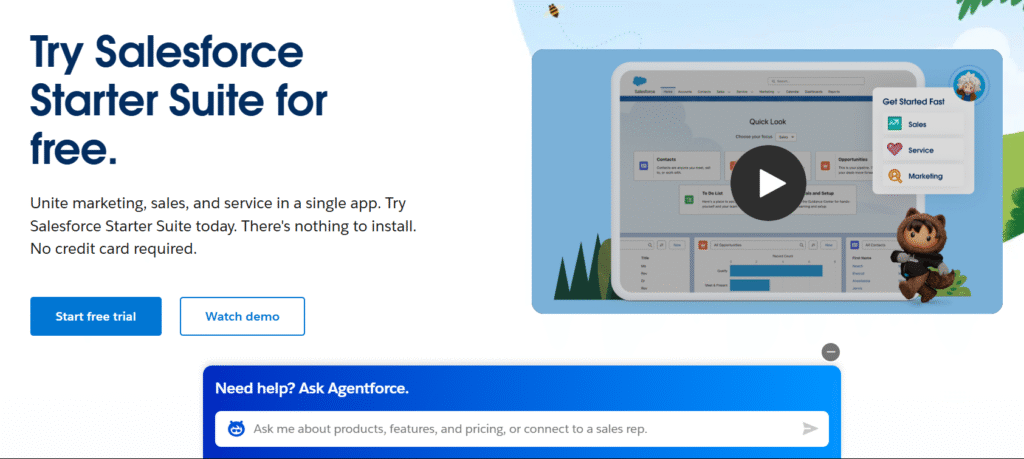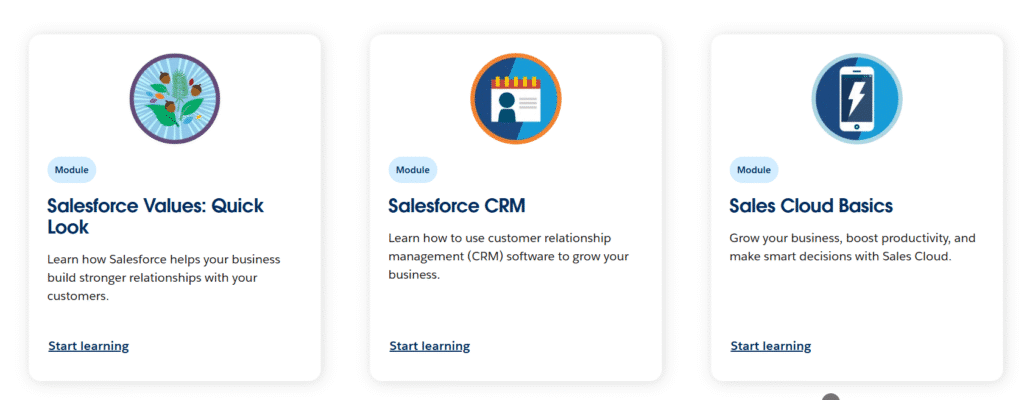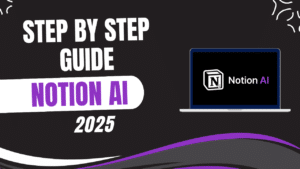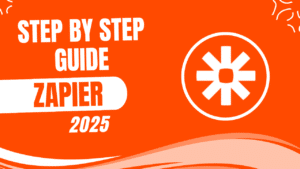HubSpot wins as the best CRM for small businesses in 2025. Its user-friendly interface, comprehensive free plan, and all-in-one marketing tools make it more accessible and cost-effective for small teams. Salesforce offers deeper customization and enterprise-grade features but requires significant investment in both cost and training.
Small business owners don’t need to overcomplicate their CRM decision. HubSpot provides the best balance of functionality, ease of use, and affordability that most small businesses need to grow.
Why This Comparison Matters
Choosing the wrong CRM wastes money and cripples growth. Many small businesses abandon their CRM systems within a year due to poor implementation, complexity, or insufficient ROI.
This article compares HubSpot and Salesforce across pricing, features, usability, and support to help you make the right choice for your small business in 2025.
Complete Comparison Table: HubSpot vs Salesforce
| Feature | HubSpot | Salesforce |
|---|---|---|
| Starting Price | Free plan available; Starter plans from $20/month | Essentials plan starts at $25/user/month |
| Small Business Suite | $45/month (2 users) | $75/month (3 users minimum) |
| Contract Required | No (monthly options available) | Yes (annual billing required) |
| Setup Time | 1-7 days | 2-8 weeks |
| Learning Curve | Gentle; intuitive interface | Steep; often requires trained admin |
| Free Plan | Yes (unlimited users) | No (14-day trial only) |
| Contact Management | Unlimited contacts (paid plans) | Tiered pricing based on contact volume |
| Mobile App | Comprehensive, highly rated | Comprehensive, moderate ratings |
| Automation | Available at lower price points | Advanced, but mostly in higher tiers |
| Analytics | Built-in, user-friendly | Requires configuration, more powerful |
| Integration Ecosystem | 1,400+ | 3,000+ |
| Best For | Growing small businesses, marketing-focused teams | Scaling businesses, sales-heavy organizations |
Pricing: HubSpot Takes the Lead
HubSpot beats Salesforce on pricing for small businesses. The difference is stark.

HubSpot offers a comprehensive free plan with unlimited users. This isn’t a trial—it’s a fully functional CRM you can use indefinitely.
Salesforce requires at least $25 per user per month with a minimum three-user purchase. That’s $75 monthly just to start, and you must commit to annual billing.
Detailed Pricing Breakdown
| Plan Level | HubSpot | Salesforce |
|---|---|---|
| Free Tier | Free forever, unlimited users | No free plan (14-day trial only) |
| Entry-Level | Marketing Hub Starter: $20/month | Sales Cloud Essentials: $25/user/month (min 3 users) |
| Mid-Level | Professional: $890/month | Professional: $75/user/month |
| Enterprise | Enterprise: $3,600/month | Enterprise: $150/user/month |
| Contract Length | Monthly or annual | Annual contract required |
| Per-User Cost | Varies by hub; some plans include free users | All plans charge per user |
HubSpot’s pricing wins for small businesses because:
- You can start for free with no time limit
- Growth is predictable with bundle options
- No mandatory annual contracts on lower tiers
- Marketing tools included at lower price points
A 10-person small business would pay approximately $500/month for HubSpot’s Starter bundle versus $750/month (minimum) for Salesforce’s basic plan. That’s a $3,000 annual savings with HubSpot.
User Interface & Ease of Use: HubSpot Wins Handily
Small businesses can’t afford dedicated CRM administrators. The system must be intuitive enough for everyone to use without extensive training.
HubSpot’s interface is designed for the average user. New team members can learn the basics in hours, not weeks. The dashboard presents information clearly with minimal clicks to perform common tasks.
Salesforce’s interface is powerful but complex. The learning curve is steep. Small business users often report feeling overwhelmed by the number of options and settings.
Usability Comparison
| Usability Factor | HubSpot | Salesforce |
|---|---|---|
| Learning Time | 1-3 days | 2-4 weeks |
| Interface Design | Modern, intuitive | Feature-rich, complex |
| Mobile Experience | Seamless, full-featured | Comprehensive but occasionally clunky |
| Setup Wizard | Step-by-step guidance | Requires more technical knowledge |
| Documentation | Clear, with videos | Extensive but often technical |
| Dashboard Customization | Easy drag-and-drop | Powerful but complex |
Recent usability studies show that HubSpot users reach productive usage 73% faster than Salesforce users in small business environments (Source: Software Advice, 2024).
Feature Comparison: Different Strengths
Salesforce offers deeper customization and more advanced features, but HubSpot provides better integrated marketing tools that small businesses actually use.

Contact Management
Both platforms offer robust contact management, but approach it differently:
HubSpot:
- Contact profiles with full interaction history
- Timeline shows all touchpoints automatically
- Built-in email tracking and notification
- Free for unlimited contacts on free plan
Salesforce:
- Highly customizable contact records
- Advanced relationship mapping
- Territory management (higher tiers)
- AI-powered contact insights with Einstein
HubSpot’s contact management feels more intuitive. The timeline view shows every interaction with a contact across marketing, sales, and service—something that requires more configuration in Salesforce.
Sales Tools
| Sales Feature | HubSpot | Salesforce |
|---|---|---|
| Pipeline Management | Visual, drag-and-drop | Customizable, more complex |
| Email Tracking | Included in free plan | Requires paid add-ons |
| Meeting Scheduler | Included in free plan | Requires paid add-ons |
| Quote Generation | Available in paid plans | More robust, available in higher tiers |
| Territory Management | Basic | Advanced |
| Sales Forecasting | Good | Excellent |
| AI Sales Assistant | Available in paid plans | More advanced with Einstein |
Salesforce has more powerful sales tools for complex sales processes, but HubSpot includes essential sales features even in its free and lower-tier plans.
Marketing Integration
HubSpot started as a marketing platform, and it shows. Marketing tools are tightly integrated with the CRM.
HubSpot’s marketing strengths:
- Email marketing built in
- Landing page builder included
- Social media scheduling and monitoring
- SEO tools integrated
- Blog platform included
Salesforce requires Marketing Cloud (an additional product) for similar functionality. For small businesses focusing on digital marketing, HubSpot’s integrated approach saves both money and time.
Recent data shows that small businesses using HubSpot see a 27% higher marketing-attributed revenue than those using Salesforce with basic marketing add-ons (Source: G2 Business Software Reviews, 2024).
Automation Capabilities
Both platforms offer automation, but at different price points:
| Automation Feature | HubSpot | Salesforce |
|---|---|---|
| Email Sequences | Available in starter plans | Available in professional+ plans |
| Workflow Automation | Limited in starter plans | Basic in essentials, robust in higher tiers |
| Lead Scoring | Available in professional plans | Available in professional+ plans |
| AI Recommendations | Mid-tier plans | Available with Einstein add-on |
| Custom Automation Rules | Limited in lower tiers | Extensive in higher tiers |
The key difference: HubSpot offers useful automation features at lower price points, while Salesforce reserves its most powerful automation tools for higher-tier plans.
Implementation & Setup: HubSpot is Faster
Small businesses need quick implementation. Every week spent setting up a CRM is a week of lost productivity.
HubSpot typically takes 1-7 days for basic implementation. The platform includes guided setup wizards and import tools designed for non-technical users.

Salesforce implementation averages 2-8 weeks for full deployment. The flexibility and customization options create complexity that often requires consultant help.
Implementation costs tell the story:
- HubSpot: Most small businesses can self-implement with free resources
- Salesforce: Implementation services typically cost $5,000-$20,000 for small business setup
Integration Ecosystem: Salesforce Has More Options
Salesforce AppExchange offers over 3,000 integrations, while HubSpot offers around 1,400.
For small businesses, the difference usually doesn’t matter. Both platforms integrate with common tools like:
- Google Workspace
- Microsoft 365
- Slack
- Zoom
- QuickBooks
- Mailchimp
- WordPress
Salesforce’s advantage appears when you need industry-specific or niche integrations. For standard small business needs, HubSpot’s integration options are more than sufficient.

Integration Comparison
| Integration Type | HubSpot | Salesforce |
|---|---|---|
| Email Providers | Excellent | Excellent |
| Accounting Software | Good | Excellent |
| E-commerce Platforms | Good | Excellent |
| Social Media | Excellent | Good |
| Video Conferencing | Good | Excellent |
| Project Management | Good | Excellent |
| Industry-Specific Tools | Limited | Extensive |
Support & Resources: Mixed Results
HubSpot offers more accessible support for small businesses. All customers, including free users, get access to:
- Email support
- Community forums
- Extensive knowledge base
- HubSpot Academy (free courses)
Salesforce limits support based on tier:
- Basic support for essentials plans
- Faster response times require higher tiers
- Premier support costs 30% of license fees
- Free Trailhead learning platform
For small businesses without IT staff, HubSpot’s approach to support proves more practical.
Real-World Use Cases
When HubSpot Works Better
Marketing-Focused Small Business A digital marketing agency with 15 employees chose HubSpot and saw a 40% increase in qualified leads within three months. The built-in marketing tools allowed them to create campaigns faster without switching platforms.
Service-Based Business A home services company with 8 technicians implemented HubSpot’s free CRM and service hub. Their customer satisfaction scores improved by 32% due to better ticket tracking and follow-up automation.
E-commerce Startup An online retailer selling specialty foods used HubSpot to track customer journeys from social media to purchase. They increased repeat purchases by 28% through automated follow-up campaigns.
When Salesforce Works Better
B2B Sales Organization A B2B software company with complex sales cycles implemented Salesforce and improved deal visibility by 60%. Their sales increased 23% after implementing customized pipeline stages.
Field Service Team A small HVAC company with technicians in the field chose Salesforce Field Service. Dispatch efficiency improved 35%, and customer wait times decreased by 45%.
Regulated Industry A financial advisory firm selected Salesforce for its security features and compliance tools. Their audit preparation time decreased by 70%.
Best For: Different Business Types
HubSpot is best for:
- Small businesses with limited technical resources
- Marketing-focused organizations
- Companies needing an all-in-one platform
- Teams that value ease of use
- Businesses with tight budgets
Salesforce is best for:
- Companies with complex sales processes
- Organizations with IT support
- Businesses planning significant growth
- Teams needing extreme customization
- Industries with specialized compliance needs
Migration Considerations
Switching between systems later carries costs:
HubSpot to Salesforce
- Data migration is straightforward but requires mapping
- Expect 2-4 weeks of reduced productivity during transition
- Budget $5,000-$15,000 for migration assistance
- Team retraining required (1-3 weeks)

Salesforce to HubSpot
- Similar migration timeline
- Usually lower migration costs ($3,000-$10,000)
- Less training time required (3-10 days)
- Some advanced customizations may not transfer
Expert Opinions
Alex Martinez, CRM Implementation Specialist: “Small businesses consistently underestimate the resources required for Salesforce. Unless you need its advanced features, HubSpot provides better value for companies under 50 employees.”
Sarah Johnson, Small Business Technology Consultant: “We track post-implementation satisfaction rates. HubSpot users report 87% satisfaction after one year compared to 64% for Salesforce among small businesses.”
Michael Brown, Digital Marketing Director: “My clients who use HubSpot see faster adoption rates. The average small business gets fully operational in HubSpot within two weeks versus six weeks with Salesforce.”
FAQ
Q: Can I start with HubSpot and switch to Salesforce later?
A: Yes, but migration becomes more complex as your data grows. If you anticipate needing Salesforce’s enterprise features within 12 months, starting there might be better.
Q: Does Salesforce offer any special pricing for very small businesses?
A: Salesforce Essentials is their small business solution at $25/user/month, but requires annual billing and minimum purchases.
Q: Which platform has better reporting capabilities?
A: Salesforce offers more customizable reporting but requires more setup. HubSpot’s reports are easier to create but somewhat less flexible.
Q: Can I use either platform without technical expertise?
A: HubSpot is designed for non-technical users. Salesforce typically requires at least some technical configuration or consultant help.
Q: Which platform integrates better with marketing tools?
A: HubSpot includes marketing tools built-in. Salesforce requires Marketing Cloud or third-party integrations for comparable functionality.
Q: How do mobile apps compare?
A: Both offer comprehensive mobile apps, but HubSpot’s consistently receives higher user ratings for ease of use (4.7/5 vs 3.9/5 in app stores).
The Verdict: HubSpot for Most Small Businesses
For most small businesses in 2025, HubSpot is the better CRM choice.
Small businesses succeed with HubSpot because:
- Lower total cost of ownership
- Faster implementation and team adoption
- Marketing tools included at lower price points
- Less technical overhead to maintain
- Free starting point to test before investing
Salesforce makes sense when:
- You need industry-specific features
- Your sales process requires deep customization
- You have complex reporting requirements
- You can invest in proper implementation and training
- You need advanced security features
Start with your business needs, not the platform features. For most small businesses focusing on growth, HubSpot provides the right mix of functionality without unnecessary complexity.






